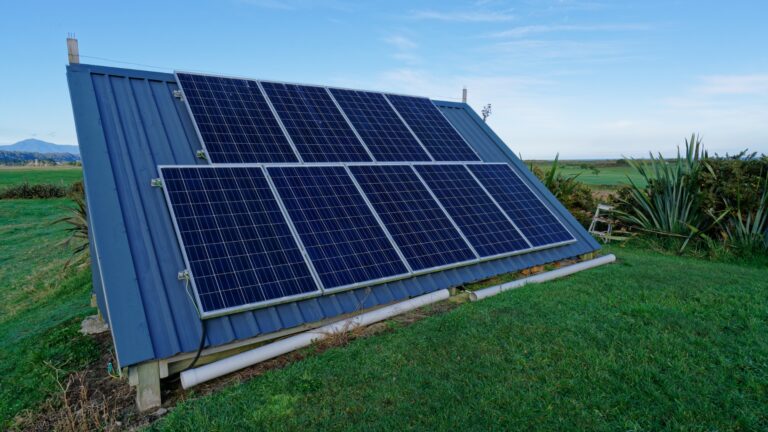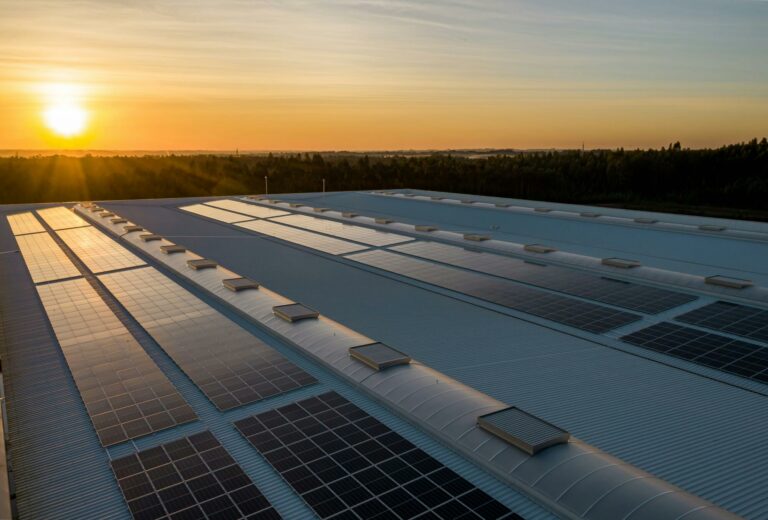Table of Contents
You’ve probably heard electric vehicles are taking over the roads, but did you know owning a commercial EV charging station can be a goldmine? Installing one of these game-changing stations at your property doesn’t just bring in potential clients; it’s a powerful statement about your commitment to sustainability.
If the idea of a solar-powered electric vehicle charger piques your interest, read on. We’ll help you understand the ins and outs, from location to budget, to determine if your property is the perfect fit for this eco-conscious venture.
Evaluating the Commercial EV Charging Station Location
When we talk about location, we’re delving into a mix of geography, accessibility, and demographics. Being close to high-traffic areas like highways, shopping centers, or office buildings is a significant advantage. These spots attract a lot of people, and consequently, a lot of electric vehicles in need of a charge.
However, it’s not enough to simply be in a bustling area. You need to ensure your property is easily accessible.
Look at road connectivity, the ease with which vehicles can enter and exit, and available parking space. The idea is to make it as convenient as possible for people to use your station. Long waiting times or complex entry and exit routes can turn customers away.
You should also consider safety. Well-lit areas that offer some form of security will attract more users compared to dark, isolated spots. Safety features can also reduce the risk of vandalism or theft, which are concerns when running a commercial establishment.
Assessing Solar Potential
Before contacting solar panel companies, it’s crucial to assess how much sun your property actually gets. While a flat, unshaded area is generally ideal, other factors come into play. These include:
- The angle of sunlight throughout the year
- Surrounding obstacles like trees or buildings that may block sunlight
- Local weather patterns
Solar panel companies often offer consultation services that include site evaluations. These commercial solar solutions experts will consider not just the area available for installation but also the efficiency of the solar panels in that specific location.
For example, the orientation of the panels can have a significant effect on energy production. South-facing panels typically get more sunlight in the Northern Hemisphere.
After this evaluation, you’ll receive an estimate of how much solar energy your property can generate. This is crucial for determining the number of charging stations you can support and the speed at which vehicles can be charged. It will also influence your budget, as you’ll have a clearer understanding of whether you’ll need supplemental power sources alongside your solar panels.
So, before you dive in, make sure you have a detailed understanding of your property’s solar potential. A professional evaluation is a smart investment that can save you time and money in the long run.
Calculating Financial Aspects
When considering the financial aspects of installing a solar EV charging station, it’s easy to focus solely on the upfront costs. However, the financial landscape is more nuanced than just writing a check for solar panel installation and EV charging equipment. You’ll need to consider operational expenses such as:
- Maintenance (winter can take its toll)
- Electricity (if solar power doesn’t fully cover your needs)
- Staffing
Fortunately, there are multiple financial incentives that can ease the burden. Look into programs that offer an EV charger rebate, as this can significantly offset the initial costs.
Also, investigate local, state, and even federal incentives aimed at encouraging sustainable energy solutions. Grants and tax incentives are also avenues worth exploring.
Long-term revenue is another aspect to consider. Will you offer free charging as a perk to attract business to your property, or will you charge a fee?
You could also entertain partnerships with local businesses to share the operational costs. Maybe a nearby cafe would like to sponsor free Wi-Fi for your charging station, which can make the location more appealing to potential customers.
Navigating Legal and Regulatory Hurdles
Installing a commercial EV charging station isn’t as simple as plug-and-play. There are zoning laws, safety codes, and various permits that you must adhere to. Skipping this step could result in hefty fines, or worse, the closure of your station.
To navigate through this intricate landscape, engage a professional in solar power services who is familiar with the legal nuances. They can help you identify the licenses you need. They can also inform you of any restrictions and guide you through the application processes.
They may look at local ordinances that might restrict the size or height of your solar panel array. Or they could check out regulations regarding the construction of commercial electric vehicle infrastructure.
Additionally, check if your area requires an environmental impact assessment. This usually involves studies to ensure your project won’t have a negative effect on local ecosystems or violate any environmental regulations.
Infrastructure Requirements for Your Commercial EV Charging Station
You might have a perfect location and an excellent financial plan. But without robust infrastructure, your charging station will fall short of expectations.
You need a solid electrical backbone to handle the power requirements. This involves more than just the solar panels and charging stations.
Transformers, inverters, and meters form the foundation of your electrical infrastructure. It’s crucial these components are capable of handling the electrical load you plan to offer. An inadequate or faulty setup can lead to inefficiencies, frequent breakdowns, or safety hazards.
When sourcing these components, always go for quality over cost-saving compromises. Commercial solar solutions often include infrastructure planning and installation as part of their packages. Rely on professionals to ensure the electrical system is up to code and capable of delivering the performance you need.
Commercial EV Charging Station: Your Next Big Move
As you can see, making your property suitable for a solar EV charging station is not a small feat. Yet, the benefits could be substantial.
From generating a new income stream to boosting your eco-credentials, the upsides are compelling. Take stock of your location, financial considerations, and legal requirements. Then, engage professionals to turn your vision into a reality.
At Huston Solar, we can analyze all the factors to determine if you can install a commercial EV charging station. Contact us to learn more.



